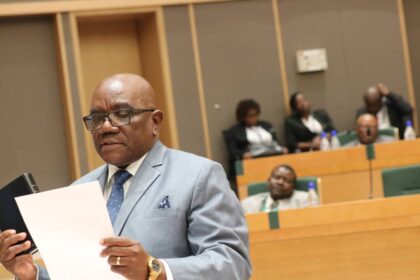By Daniel Chigundu
GALZ, an association that represents the interests of Lesbians, Gays, Bisexuals, Transgender, and Intersex (LGBTI) people in Zimbabwe says the current proposed Draft Marriage Bill is discriminatory to people of different sexual orientations.
Zimbabwe is in the process of crafting a consolidated marriage law that will harmonise the current Customary Marriages Act [Chapter 5:07] and the Marriages Act [Chapter 5:11] into one Act of Parliament governing marriages in the country.
GALZ director Chesterfield Samba said even though most LGBTI groups in Zimbabwe have never campaigned for marriage, the proposed Bill is not inclusive enough to pass the test of what is expected in a democratic society.
“Unfortunately, the Bill continues to sideline other citizens like us who may want to establish long committed relationships and share a life together. It is thus not inclusive and may be viewed as discriminatory.
“A new democratic Zimbabwe requires a new way of doing things, which does not repeat the intolerance and discriminatory politics of the past.
“We appeal to lawmakers to encourage a culture of tolerance towards those of a different political persuasion or sexual orientation,” he said.
Samba added that “respect for the new Constitution requires that the past laws and policies of intolerance and discrimination against unpopular groups, including the LGBTI community, should be abandoned”.
The issue of LGBTI people is very topical in Zimbabwe as they are mostly judged negatively, especially from a religious point of view.
Former President Robert Mugabe was in the habit of verbally attacking them on every other platform both locally and internationally.
However, in a bid to make their issues known, GALZ said it has begun a sensitisation program for Parliamentarians and has also been submitting its proposals and contributions to various Bills such as the Education Bill which is currently before Parliament.
The GALZ director said although they have made their submissions to the Education Bill the challenge is that it is up to the Bill drafters to consider them or not.
“We made submissions towards the Education bill, with submissions, you make them and it’s up to the drafters to consider public submissions,” he said.
GALZ which was formed in 1990 is of the view that stigma, denial, and discrimination of LGBTI persons have hampered most LGBTI students from acquiring an education and accessing educational material, conducting research, and at times completing their education.
The organisation believes that inclusive education is a rights-based approach to education that appreciates diversity among learners and their unique educational needs.
“Inclusive education centres its efforts on children who are vulnerable and prone to exclusion and marginalisation.
“The Ministry of Primary and Secondary Education in Zimbabwe conducted a study in 2015 and reported that over 1.2 million children are out of school, we would like to believe that a section of these are LGBTI learners who for various reasons are out of school,” said GALZ in its proposals to the Education Bill.
Among some of its proposals in the Education Bill, GAZL highlighted the silence of the bill in regard to discrimination and exclusion on the grounds of “sexual orientation and gender identity”.
They also proposed the development of an Inclusive Education Policy that will address efforts towards improved outcomes for gender-diverse learners through providing guidance and support frameworks that enable the implementation of inclusive education in Zimbabwe that ensures that all learners remain in school including Trans and Intersex persons.
While Zimbabwe has for a long time maintained a hard-line stance against LGBTI issues, other countries in Africa are slowly becoming tolerant and relaxing their previously exclusive policies and laws. The Supreme Court of Botswana just recently set the tone for the acceptance and recognition of LGBTI people in their country.–



